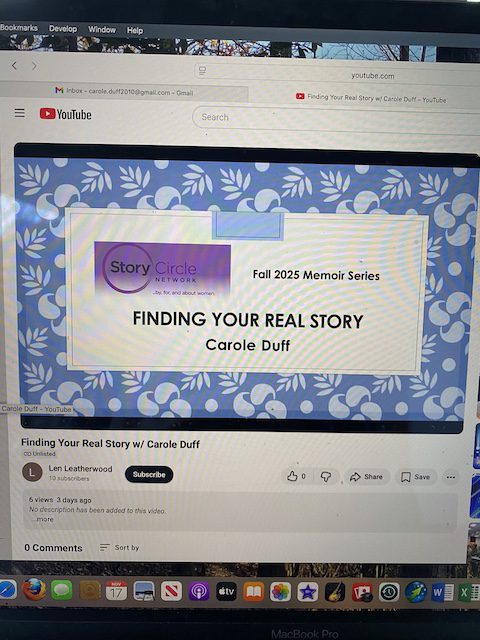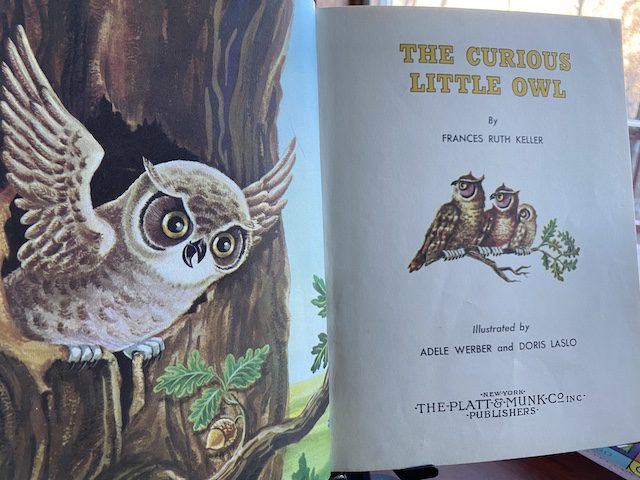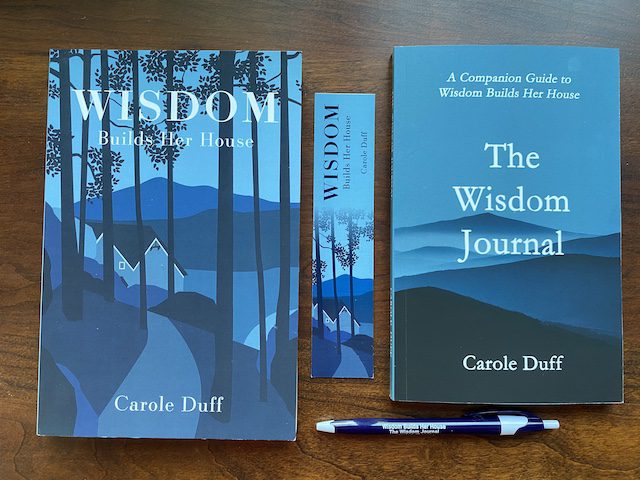


During the workshop I presented for Story Circle Network last Wednesday night, titled “Finding Your Real Story,” the final question was: Why this story?
I shared a little about my own not-so-straight path, the turning points that redirect and stepping stones to lead forward. How we all suffer inexplicable disruptions, losses, and rejections in life; how we often hide that suffering; how families often hide secrets, too, even while encouraging curiosity.
Story what and why
Here’s a story from my childhood. When I was six-years-old, nine months after a brutal “inexplicable disruption” happened to my family—an event we didn’t talk about—my parents gave me a copy of The Curious Little Owl by Frances Ruth Keller. The story went like this.
Once upon a time there was a family of owls: Father Owl, Mother Owl, and Little Owl. Though Mother and Father modeled the correct “Who? Who?” behavior when animals passed by, Little Owl said nothing. Mother Owl was worried about her son, but Father Owl was sure he would surprise them.
One day Little Owl saw a rabbit hopping along and cried, “Why? Why?” Oh, dear, that was not the surprise Father Owl had expected. Mother and Father explained that owls mustn’t say “Why,” only “Who” as a polite way of saying hello without expecting an answer.
Little Owl replied, “I can see who it is—I just wanted to know why…”
I wanted to know, too, and that’s why I wrote Wisdom Builds Her House and the companion guide The Wisdom Journal, so readers could journey the what and why with me.
Story why, why
In her January 7, 2020 blog post, writer, editor, and coach Lisa Ellison wrote: “Every essay and story must contain a why. The why is the story’s point and the reason we should care about the work. It’s often phrased as why this, or why now, or why you. As the writer, it’s your job to clearly articulate the why of your writing in the most engaging way. But have you ever thought about the why of your writing life?”
Why this, why now, why me? When I began to question the why of my writing life, I consulted another authority: Andrew T. Le Peau. In his book Write Better: A Lifelong Editor on Craft, Art, and Spirituality Le Peau asks, “Why did I write? Probably, first and foremost, I wrote it for myself. And that’s not a bad thing. I wanted something inside me to get out. So I did it. Was the process enjoyable? Did I improve my skills? Was I pleased with the result? Did I learn something along the way? Well, then, that’s worthwhile.”
The Why.
Lisa Ellison offered further insight. “The question is not whether the writing affects you, but what effect you want the writing to have on you and the reader.” The point I emphasized throughout my presentation last Wednesday for the Story Circle Network:
- Which story wants to be told?
- When does the story take place?
- Who is telling the story? (Which “I”?)
- What is the problem; what are the stakes?
- How does “I” navigate the obstacles?
- Where to begin, where to land?
- Why am I sharing this story?
Write to find your real story; revise to engage your readers. Write to break the silence. The story Why? Why?
Story why and who
So, what happened to the Curious Little Owl who said, “Why? Why?”? Mother and Father told him to ask them his questions, which he did, often and sometimes without thinking, much to his parents’ distress. They sought help from Great-Grandfather Owl, who asked Little Owl why he said “Why?” instead of “Who?”
“I find out ever so many things that way,” Little Owl replied and told Great-Grandfather the many things he’d learned. Impressed, Great-Grandfather Owl advised Little Owl’s parents to answer their son’s questions, and if they were unable to answer them, send him to Great-Grandfather.
The old owl turned to Little Owl and said, “Of course, you must try to find the answers to your questions yourself, too, Little Owl. The answers that you find out for yourself you will learn best and remember longest.”
This sage advice transformed Little Owl. Now he shared this learning with the forest animals who consulted him.
The Curious Why? Why? of the story.
Why tell your story? Because telling what happened makes “you the I” come alive. Why you? Because the Who of your story is the real you.
Notes from Vanaprastha Podcasts on my YouTube Channel: https://www.youtube.com/@CaroleDuff



0 Comments